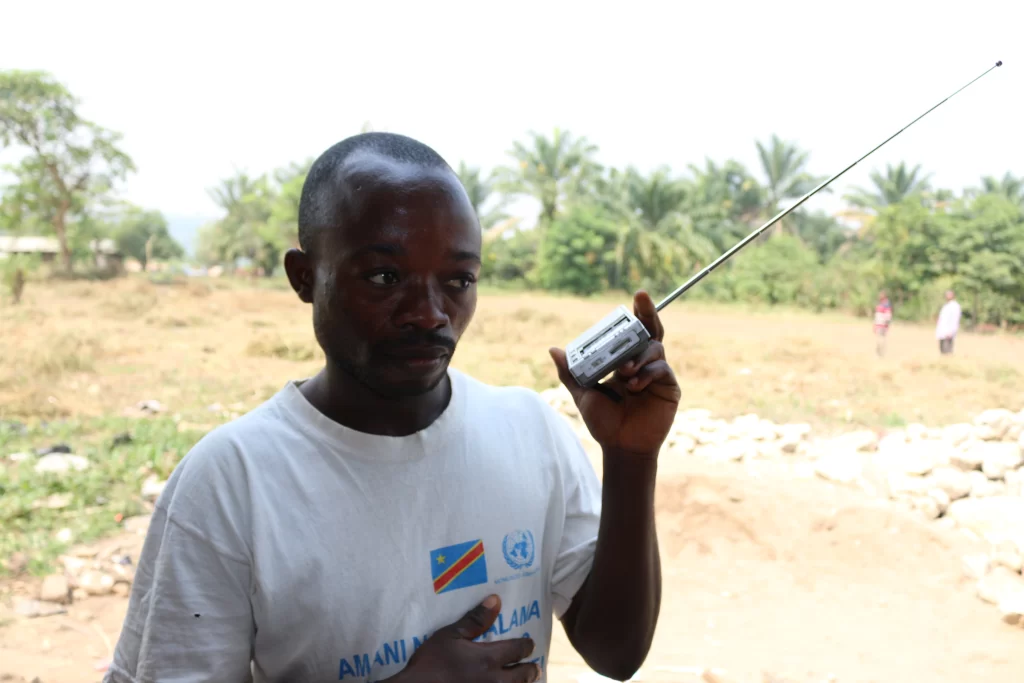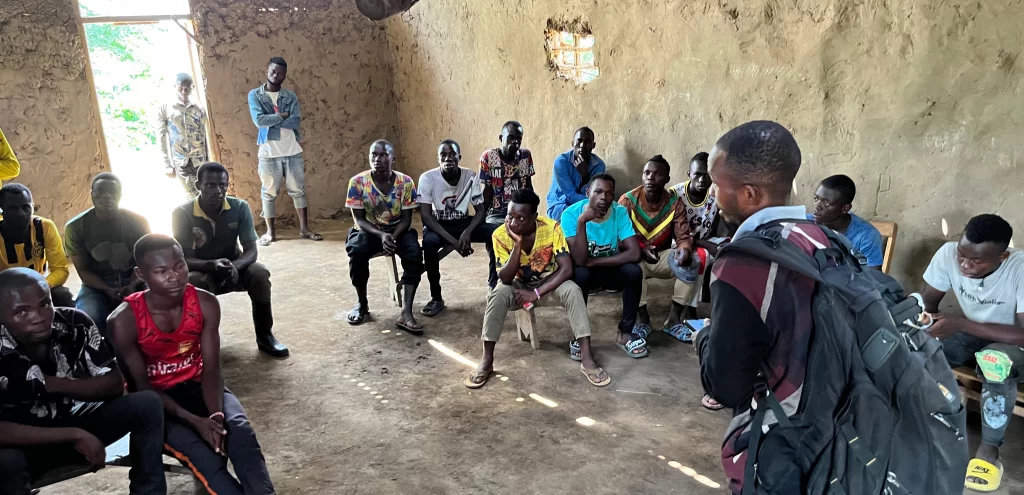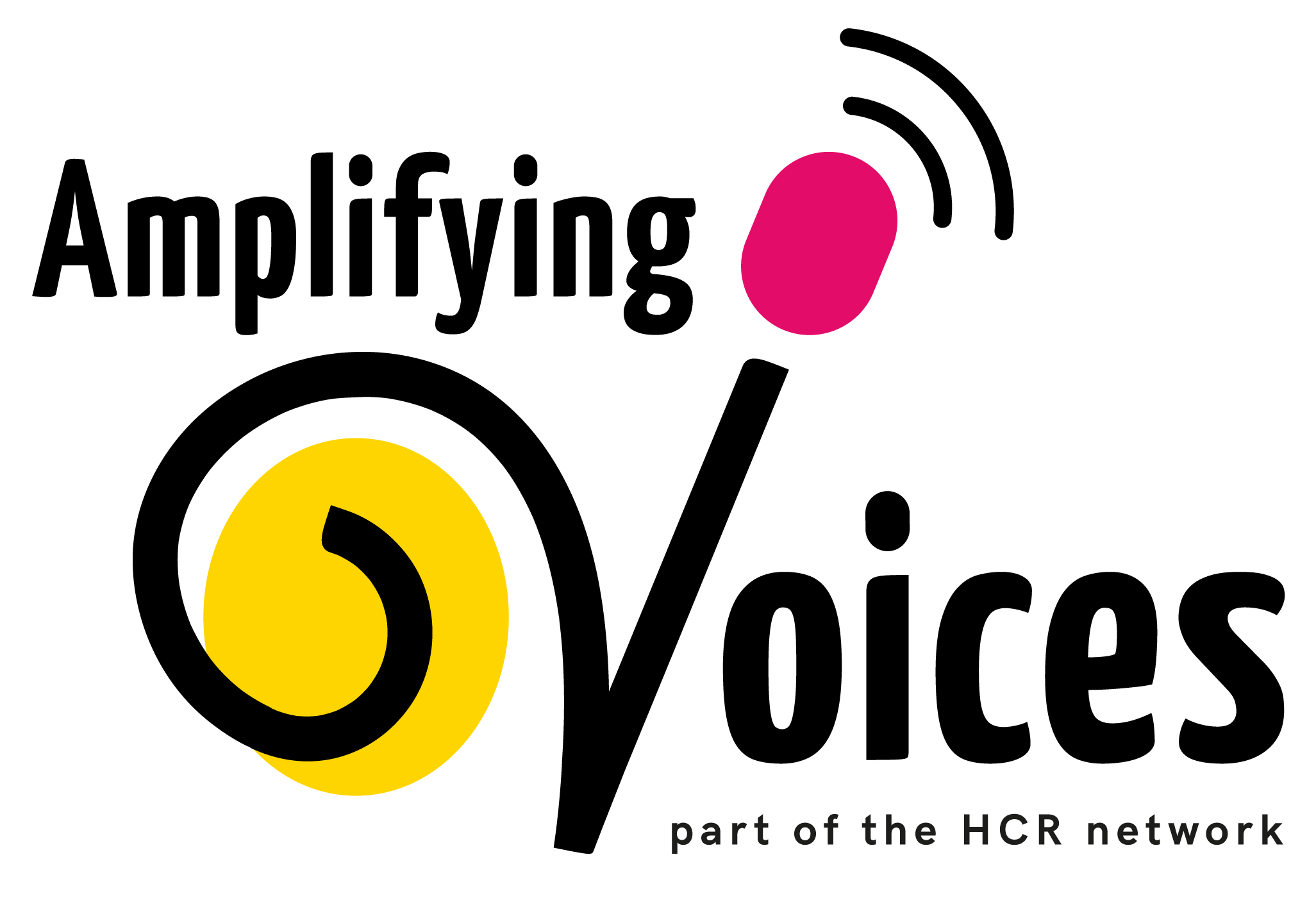
The Mics That Won’t Go Silent in Kivu’s Conflict
When the rebels came to Kichanga Village in 2023, the night was pierced by silence and fear. Dozens were killed — friends, neighbours, and faithful listeners of Umoja Radio. For reporter Jean-Baptiste Mbilinyama, the massacre was personal. “These were people we knew,” he recalls. “We grieved with them. And we decided our microphones would not go silent.”
In the aftermath of the Kichanga Massacre, everything in the community collapsed — livelihoods, schools, and the fragile sense of safety that holds a village together. Yet across the airwaves through their solar-powered transmitters, Umoja Radio became the heartbeat of recovery. Its broadcasts offered trauma healing, safety information, and, above all, a space for voices long silenced by fear.
On air, survivors spoke directly to government officials, humanitarian workers, and the wider world. Civil society leaders, soldiers, and elders met not on a battlefield but behind a microphone, united by a single goal: peace. “If we have returned to our village,” one listener said, “it is thanks to Radio Umoja, which kept reminding us that peace is possible.”
Jean-Baptiste recalls how beyond news, the station sowed seeds of renewal — literally. “Programmes on small-scale farming and livestock helped families fight famine, while education campaigns brought children, especially girls, back to school. Broadcasting near the edge of the Virunga National Park, a UNESCO World Heritage site, Umoja also championed environmental care and coexistence.”

Sammy from the Umoja Radio team meets community members from Kachanga village
Now powered by a new solar system, with support from Amplifying Voices and FEBC Australia, Umoja Radio stays on air for 18 hours each day — a steady companion against the background of conflict.
One listener said Umoja’s message remains the same, echoing across the hills of North Kivu: “Pamoja tuna weza” — Together we can.
